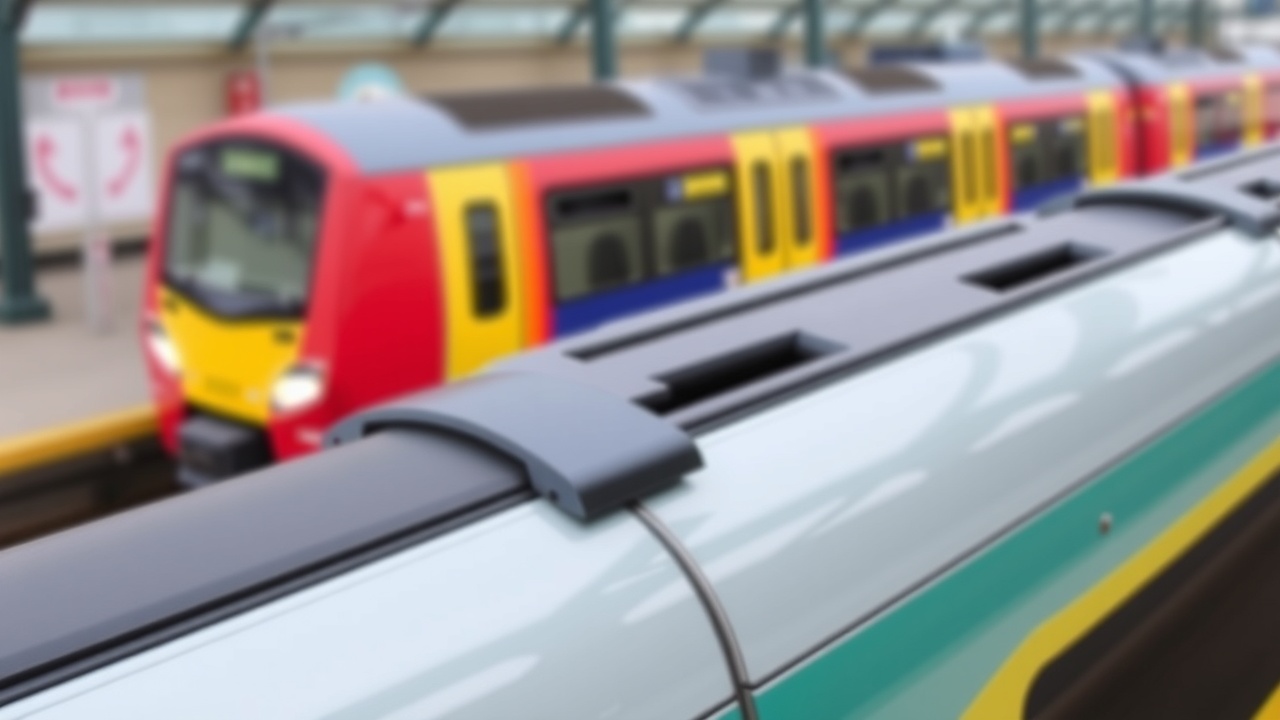
Growth-related worries have caused Trainline's stock to plummet, but the sell-off appears to be excessive
On May 7, Trainline (LSE: TRN) released its full-year results, and the market's response was intense. The shares fell almost ten percent that day, bringing the total losses for the year to twenty-five percent. The year-to-date performance is significantly worse. The shares have fallen more than 40% since reaching a multi-year high of 415p in December. Investors appear to be particularly concerned about two issues.
First, a potential government rival in the company's biggest market, the UK, and international growth that has stagnated over the past year.
Concerns about the expansion of Trainline.
The group made 442 million dollars last year. Of that amount, 208 million came from its UK home market. Trainline Solutions' tech division brought in 181 million, while the international consumer brought in 53 million. All segments' revenue increased by 12% on a constant currency basis. Revenue statistics only give half the story because, despite being best known for selling train tickets, Trainline is also getting more and more involved in other markets like insurance and hotel reservations.
With sales up 13% in the UK, 4% internationally in constant currency terms (approximately 17% of total group ticket sales), and 20% through Trainline Solutions (approximately 15%), net ticket sales increased by 12% to £5.9 billion.
The dilutive effect of proportionately faster growth in shorter-distance travel (commuter and on-the-day bookings), which generates relatively lower rates of revenue than longer-distance travel, was largely offset by increasing non-commission revenues, such as insurance and hotel bookings, according to Trainline in the UK market.
By collecting a commission from each ticket sale, Trainline generates revenue. Although it does not reveal its earnings, we can infer some information from its adjusted earnings before interest, tax, depreciation, and amortisation (Ebitda), which is equivalent to 2 points 69 percent of adjusted ticket sales. That implies a take of 2 point 69 percent per ticket, but the actual number is probably much lower. Other higher-margin operations, like the sale of insurance and software licensing income through Trainline Solutions, are included in this margin.
This aspect of the business is the most fascinating. The company has created and markets its own software that facilitates communication between other software programs and enables businesses to plan rail travel throughout Europe using internal platforms. For over twenty years, Trainlines' booking tools have been assisting businesses in navigating the intricate European rail market, particularly when traveling between the UK and Europe. Sales of international train tickets through this software increased by 63% last year, and the business made Ebitda of 91 million on 181 million in revenuea take-rate of about 50%. The software is used to run the reservation systems for about one-third of the UK's rail operators.
A company in rude health, growing at a double-digit rate in a relatively unique area with few competitors, was shown by last year's figures. So why, during the last five months, have investors been scrambling to get out?
The government steps in.
The first concern for the company is growth. "We believe Trainlines shares got hit on the day due to the weak revenue guidance of +0 percent-3 percent which was below consensus," said Karl Burns, an analyst at Canaccord Genuity, in the days following the results' release. There were two causes for this pessimistic attitude. The government's "Project Oval" may reduce the company's top line by roughly 6 million, or 1 percent of revenue, according to Trainline, which also anticipates a lower commission rate in the future, which will cost about 18 million.
The Department of Transport (DfT) is funding Project Oval, which will see the expansion of London-style contactless train ticketing to about 100 stations throughout the southeast region of England over the course of the year.
About 50% of them have already been turned on. These tap-in/tap-out ticketing systems beat Trainline at its own game by providing customers with the best possible deal and eliminating the need to purchase tickets in advance. Although the revenue loss from this is minimal, it raises broader issues regarding the gradual nationalization of the economy.
The business isn't stagnating. It is putting in a bid through Trainline Solutions to take part in digital pay-as-you-go trials that will start in the East Midlands and Yorkshire later this year. If this is successful, the company may be able to access a completely new market.
The impending opening of Great British Railways (GBR) is the other danger to Trainline. Once established, the government has confirmed that this body will look for ways to replace the retail websites of train operators with a single public-sector retail site and app. This poses a serious threat to Trainlines' position in its largest market.
We will find out the government's decision at the end of this year when the results of the public consultation on GBR are released.
From 2021 to 2025, a line graph displaying Trainline's share price in pence shows both volatility and a declining trend.
Set up for failure.
Canaccord Genuity says the shares are now "priced to fail" because of this risk looming over the company, but several analysts think this is an overly harsh assessment.
The valuation offers a great risk/reward dynamic, Canaccord says, adding that "we believe a significant proportion of the bad news is now behind the company." The company is positioned to expand in both Europe and the UK, according to Shore Capital. According to Panmure Liberum, this "cash-generative machine still feels extremely undervalued" at a forward price-to-earnings ratio (p/e) of only 12. It appears that management concurs as well. Since September 2023, the company has repurchased 154 million shares, or 14% of its current market capitalization of £1.08 billion, after initiating a new 75 million share buyback in March.














Leave a comment on: Trainline is a low-cost cash machine for investors